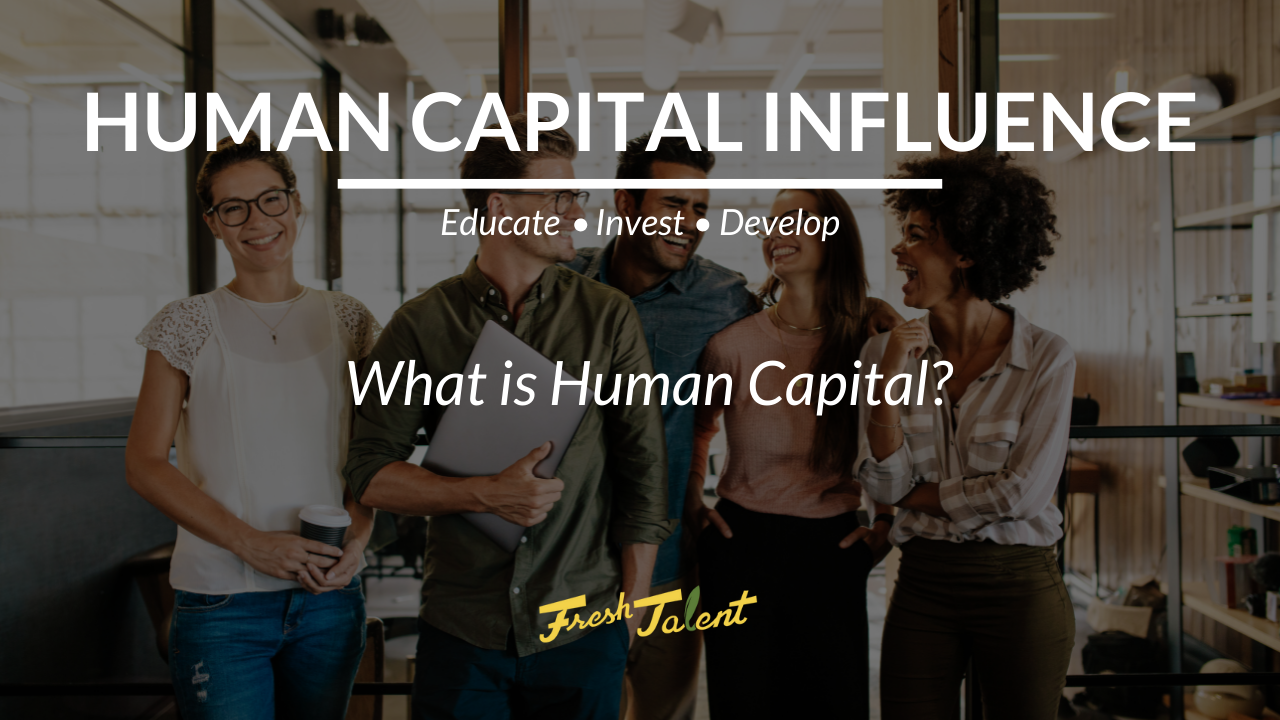What is Human Capital?

What Is Human Capital and How Does It Work?
The economic value of an employee's experience and talents is called human capital. Education, training, intelligence, skills, health, and other qualities valued by employers, such as loyalty and punctuality, are examples of human capital. As a result, it is an intangible asset or characteristic that does not (and cannot) appear on a company's balance sheet. Human capital can boost productivity and, consequently, profits. The more a business invests in its personnel, the better its prospects of productivity and success increase.
IMPORTANT TAKEAWAYS
- Human capital is an intangible asset that is not recorded on the financial sheet of any business.
- The term "human capital" refers to qualities such as an employee's experience and skills.
- Because not all labor is created equal, companies can develop human capital by investing in their employees' training, education, and perks.
- Economic growth, productivity, and profitability are all seen to be linked to human capital.
- Like any other asset, human capital can depreciate due to long periods of unemployment and a failure to stay up with technology and innovation.
Recognizing Human Capital
From the top-down, an organization is only as good as its people, so human capital is crucial to a business. The human resources (HR) department is usually in charge of labor acquisition, administration, and optimization. The key directives are:
- Workforce planning and strategy.
- Recruitment.
- Employee training and development.
- Reporting and analytics.
- And more...
On the other hand, employers can significantly improve the quality of their capital (employees) by investing in their education, experience, and abilities that will impact the whole company.
These investments in human capital can be easily calculated because they are based on the investment of employee skills and knowledge through education. HR managers can figure out how much money they'll make before and after making any investments. Any human capital return on investment (ROI) can be computed by dividing the company's total profits by its entire human capital investments.
Front line leaders can also analyze the ROI of their human capital year over year (YOY) to measure how profit is improving and whether it is related to human capital investments. For example, if Company X invests $200,000 in its human capital and makes a total profit of $1.5 million.
Human Capital's History
Until relatively recently, the phrase was used to refer to the work necessary to manufacture goods. However, the most current idea was developed in the 1960s by various economists, including Gary Becker and Theodore Schultz, who coined the word to describe the worth of human capacities.
Schultz felt that human capital, like other types of money, could be used to enhance the quality and level of production. This would necessitate an investment in an organization's employees' education, training, and better benefits.
However, not all economists concur. According to Harvard economist Richard Freeman, human capital was a barometer of talent and competence. To truly become productive, he stated, a corporation must invest in training and motivation of its personnel and capital equipment. He concluded that human capital was not a factor of production.
What Is Human Capital and How Is It Defined?
Communication skills, education, technical skills, creativity, experience, problem-solving abilities, mental health, and personal resilience are all examples of human capital. Advances in human capital result in increased innovation, social well-being, equality, productivity, and participation rates, all of which contribute to business growth.
What Are My Options for Increasing My Human Capital?
To increase your human capital, you can pursue additional education, broaden your horizons outside of your social and professional circles, gain more experience, improve your communication skills, improve your health, and expand your network.
By Justin Quigley
Human Capital Expert
Invest in your organization by implementing The Fresh Talent Continuity Program

